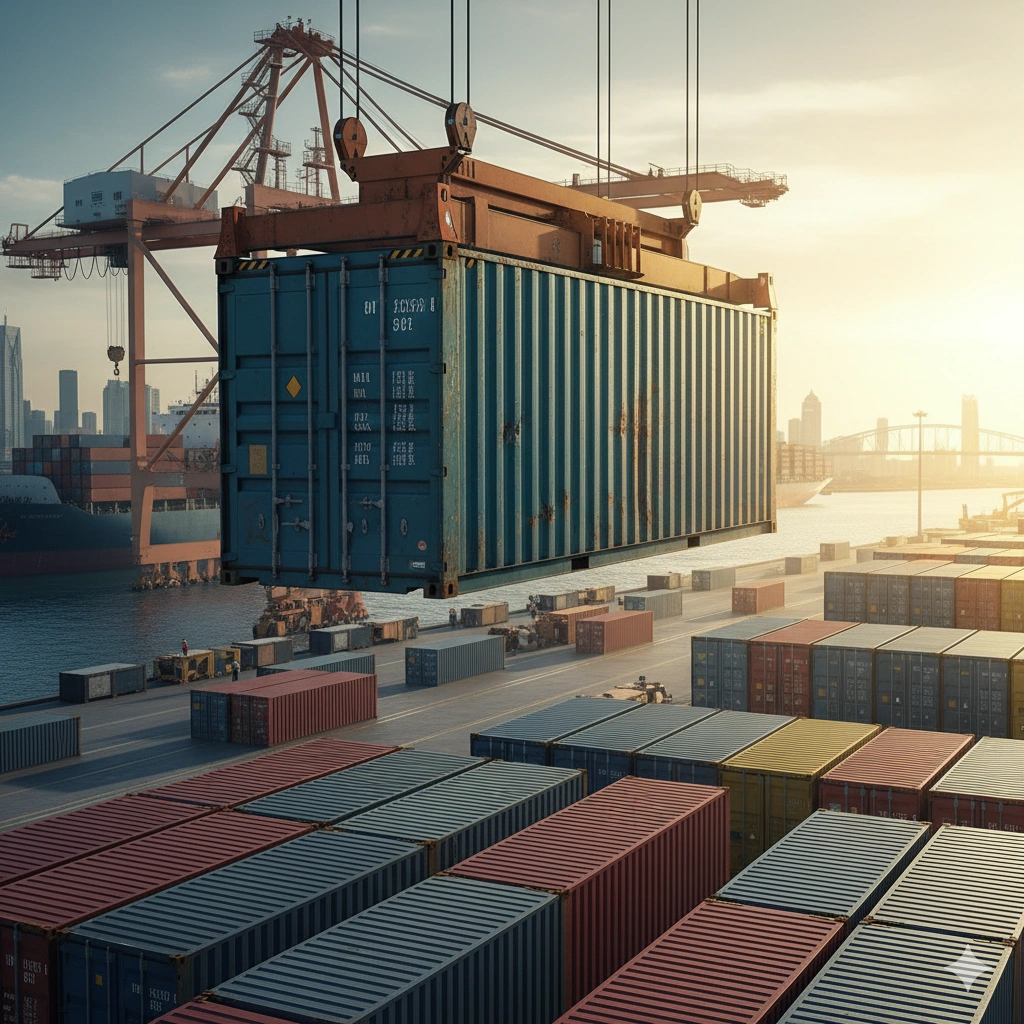Home » Shipping Container Food: Safe and Efficient Shipping Tips

The transportation of food between cities, regions and across the international borders has become an essential aspect of modern trade. It can be seafood to be delivered to restaurants, frozen food to be sold in stores, or perishable goods that will be delivered to a loved one, the issue of safety and freshness cannot be compromised. At Carry Logistics Company, we are all about shipping container food, providing the solutions that ensure efficiency and reliability at all levels of the supply chain.
This article will cover the basics of food delivery, including container specifications and packaging methods, and provide some tested recommendations on how to keep products in the same condition during shipping.
Safety is all when it comes to shipping food. Food products are prone to contamination and spoilage as opposed to non-perishable commodities which are not susceptible to temperature changes. This makes proper handling critical not just for customer satisfaction but also for public health.
According to the Food and Agriculture Organization (FAO), it is estimated that approximately one-third of all food produced in the world is wasted- a large part of it because it was mishandled during shipping. Companies that do not uphold high standards not only lose money, but also lose reputation. Shippers can drastically alleviate risks by selecting professional logistics partners that have experience in managing food shipping container loads.
Ship food delivery today goes far beyond the local takeaways in the busy world. Shipping containers are needed by restaurants, retailers and food manufacturers to move bulk food products safely. These storage containers are made to resist prolonged transit time and to preserve the foods against heat, moisture, and pests.
Other high-end shipping container food stall designs go as far as a built-in fridge to guarantee safety of the products until they are consumed, even in smaller-scale events. In the case of more significant shipments, refrigerated containers (also known as reefers) are becoming the norm in the industry, providing a precise temperature regulation of frozen and chilled products.
Packaging is usually a determinant of the effectiveness of food shipping services. The most appropriate containers cannot stop food spoilage without appropriate protection layers.
With the addition of insulation with refrigerants, food can be kept at safe temperatures for days, including in long-distance transportation.
International shipping of cold food is not limited to packaging. Different regions have different regulations that must be followed or it will be delayed or confiscated.
Since Dubai is a global hub, several exporters use Carry Logistics UAE to make the process of shipping perishable food across the borders easier.
At Carry Logistics UAE, we introduce intense expertise to food logistics. Our services are committed to safety, compliance and efficiency with refrigerated shipping containers and insulated packaging solutions. We handle:
Whether it is a restaurant order of frozen seafood, a retailer shipping chocolates or an exporter shipping perishable food across continents, we would like to make sure that your goods are safe, fresh and timely.
The need to find a reliable shipping container food solution has never been greater. Due to globalization and the emergence of e-commerce, food must travel as fast, safe, and even greater distances than ever before. The formula of success boils down to three components namely the appropriate containers, clever packaging and good logistics partners.
Through the help of a reputable firm like Carry Logistics UAE, companies and individuals can send food without a single concern that each box, pallet, or container will be handled with precision and care. We simplify food logistics, make it safer and efficient, whether shipping perishable goods overseas or ensuring their international compliance.
The best way to ship frozen food is to use insulated containers with dry ice or gel packs, ensure items are pre-frozen, and choose expedited delivery. To ship large loads, it is usually recommended to use reefers, and then smaller ones are shipped in insulated shipping boxes.
Yes, DHL food shipping solutions can be used to transport perishables internationally, however, it requires tight packaging and labelling. Shippers can also require health certificates or other permits depending on the destination. It is important to always research before shipping whether the regulations allow the shipment of food abroad.
In general, the food on cruise ships is free, because the basic dining options are usually included in the ticket price. Nevertheless, a specialty restaurant, high-quality drinks, and some snacks can be an additional expense.
A food shipping container is meant to be used in the transportation of goods with refrigeration to ensure it is useful in long-distance transportation. A shipping container food stall, however, is a converted shipping container that functions as a kitchen or vending stall at an event or a market. They both use insulation and food safety requirements, but one is logistical and the other is used in retail and hospitality.
Company
© 2025 Made in UAE with 

Pharmaceutical
Dangerous Goods Handling

Warehouse & Distributions Services

Customs Clerance
Land Freight

Sea Freight